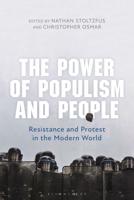Publisher's Synopsis
In the years since 9/11, counter-terrorism law and policy has proliferated across the world. This handbook comprehensively surveys how the law has been deployed in all aspects of counter-terrorism. It provides an authoritative and critical analysis of counter-terrorism laws in domestic jurisdictions, taking a comparative approach to a range of jurisdictions, especially the UK, the US, Australia, Canada, and Europe.
The contributions to the book are written by experts in the field of terrorism law and policy, allowing for discussion of a wide range of regulatory responses and strategies of governance. The book is divided into four parts, reflective of established counter-terrorism strategic approaches, and covers key themes such as:
- Policing and special powers, including surveillance
- Criminal offences and court processes
- Prevention of radicalisation and manifestations of extremism
- Protective/preparative security
- The penology of terrorism
In addressing counter-terrorism laws across a broad range of topics and jurisdictions, the handbook will be of great interest and use to researchers, students and practitioners in criminal law, counter-terrorism, and security studies.










